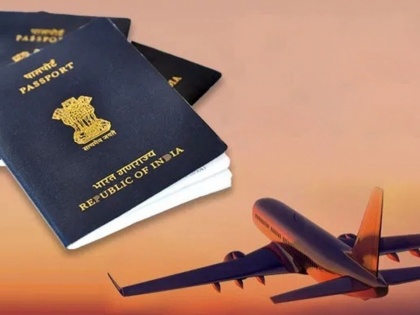US Visa Rules to Get Tougher for Applicants With Diabetes, Obesity, Heart Disease
By Lokmat Times Desk | Updated: November 8, 2025 17:20 IST2025-11-08T17:09:59+5:302025-11-08T17:20:01+5:30
US President Donald Trump assumed office for the second time during which he has passed a number of immigration-related executive ...

US Visa Rules to Get Tougher for Applicants With Diabetes, Obesity, Heart Disease
US President Donald Trump assumed office for the second time during which he has passed a number of immigration-related executive orders to curb the inflow of migrants. Their is a new update for people who are applying for the US visa. Under new directives Foreign nationals who will be applying for visa should have to follow the criteria. According to a government directive applicant who have health condition like diabetes or obesity could be denied US visas and permanent residency. KFF Health News reports that the State Department sent new guidelines to American embassies worldwide. According to a senior attorney, the guidance applies to all visa applicants but is mainly for those seeking permanent US residency.
A State Department cable directs visa officers to flag applicants whose medical conditions, such as cardiovascular diseases, cancers, or obesity, could require extensive and costly medical care. These applicants could be deemed a "public charge" due to their health or age, potentially burdening US resources. While the guidance applies to most visa applicants, it will likely be used primarily for those seeking permanent residency, according to Charles Wheeler, an attorney with the Catholic Legal Immigration Network.
The Trump administration increased H-1B visa fees and heightened scrutiny for Green Card applicants, disproportionately affecting Indians. Visa officers were instructed to evaluate applicants' ability to cover medical expenses without government assistance, considering potential future medical needs, even without medical expertise. Experts expressed concern that these officers lack the necessary training to make such projections, potentially leading to biased decisions. US embassies and consulates were also directed to consider the health conditions of applicants' family members, assessing whether dependents' needs might hinder the applicant's employment.
Also Read: China's expanding repression and global influence exposed as Uyghur advocates amplify resistance worldwide
While immigrants already undergo medical exams for communicable diseases, mental health history, substance use, and vaccinations, new guidance emphasizes the consideration of chronic illnesses. This encourages speculation on the cost of applicants' medical care and their employability based on their medical history, according to immigration lawyer Sophia Genovese.
Open in app